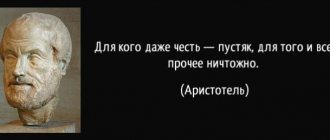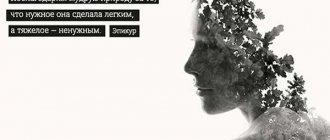Hello, dear readers! Welcome to the blog!
Renaissance philosophy - the most important thing briefly. This is the topic for this article in continuation of the series of articles on philosophy. The article also contains a list of books on Renaissance philosophy and a video with a brief description of the main representatives and main ideas of Renaissance philosophy. From previous articles you learned the topics: Part 1. Philosophy - definition, subject of study Part 2. Philosophy of Ancient Greece briefly Part 3. Philosophy of Ancient India briefly Part 4. Philosophy of Ancient China briefly Part 5. Philosophy of the Middle Ages briefly
Historical background of the emergence of Renaissance philosophy
- Feudal relations became obsolete by the 14th century. Cities and self-government in them began to grow rapidly. Especially in Italy, where the traditions of autonomy of large cities, such as Venice, Rome, Naples, Florence, were not lost. Italy was a model for other European countries.
- By the 14th century, monarchs began to feel burdened by the influence of the Catholic Church in many areas of life. The townspeople and peasants were also tired of the clergy's taxes. This led to a struggle for reform of the Church and a split between Protestantism and Catholicism.
- The 14th-16th centuries were marked by great geographical discoveries . Systematization of natural science knowledge was required. Scientists have become increasingly bold in declaring that the world is rational.
Boris Pasternak: “Living life is not crossing a field”
The meaning of this wonderful phrase is that life is always new and constantly remains a mystery. It opens before us gradually, like the greatest mechanism: segment by segment, moment by moment. Years pass, some events give way to others, but one thing remains unchanged: the beauty and greatness of this world. A person, having been born, begins to master the horizons of his capabilities step by step, tries himself in different areas of activity, and builds relationships with people. Not everything works out smoothly and easily at once. The difficulties we face build character, teach us to overcome obstacles and not be afraid of them appearing in the future.
Statements about would be incomplete without the discovery of a simple truth, which Oleg Georgievich repeatedly speaks at his seminars: we are responsible for our actions, but how often do we try to achieve a state of happiness by acting outwardly, without turning inward? A true master of psychology and an expert in the field of the human soul, he undoubtedly knows what he is talking about.
Representatives of Renaissance philosophy
Dante Alighieri , author of The Divine Comedy, poet and thinker, made man the main character, the central figure of the story.
Petrarch in his sonnets called on everyone in his country to heal from anger and forget about hostility among the townspeople.
Boccaccio very sharply criticized church ministers who did nothing for enlightenment, but only grew rich, denounced nobles who were incapable of creation, and put in the first place the human mind and the intention to get as much joy and pleasure from life as possible.
Erasmus of Rotterdam, in his deeply Christian philosophical works, showed that humanism should be the basis of everything and the old ideology of feudalism cannot give anything to a person.
Leonardo da Vinci made significant contributions to the development of humanism in his works and scientific works.
Giordano Bruno and Galileo Galilei, Nicolaus Copernicus, in their works on natural science and philosophy, began to identify God not just with nature, but with the infinite Cosmos and the Universe.
We can say that almost all the literature and philosophy of that time were focused on recognizing the human right to his life, to development and creative self-expression .
The philosophy was filled with recognition of the human right to happiness, self-determination and opportunities for one’s development . The person has become more important than everything, including the state as such.
Valery Sinelnikov: “We create our own illnesses and problems”
It has long been known that the famous homeopath and psychotherapist Valery Sinelnikov repeatedly emphasizes in his books that people themselves are able to control their emotions. In other words, we ourselves choose what to feel and how to act in certain situations.
Winged expressions about life presented in the books of this author help thousands of people get rid of ailments, gain self-confidence, become a more holistic person, able to rise above the circumstances of their own existence and constantly improve. Personal growth, according to Valery Sinelnikov, is an integral component of a successful, constantly developing personality.
The main directions of philosophy of the Renaissance
- Heliocentrism is a heliocentric system of the world, representing the Sun as the center around which the Earth rotates. Heliocentrism comes from antiquity and became widespread in the 16th and 17th centuries.
- Humanism comes from the Latin word humanus (humane) and means an ethical position about the right of people to freely determine the form and meaning of their own lives.
- Neoplatonism is a direction in philosophy that originated in ancient philosophy in the 3rd century and was based on the ideas of Plato: a transcendental single origin, cosmic hierarchy, the ascent of the soul to the original source.
- Secularism
is the assertion that laws and government should be separate from religions.
Characteristic features of Renaissance philosophy
- Freedom of expression against senseless religious scholasticism and the dominance of the church in all spheres.
- Literature and philosophy are increasingly focusing on the value of man .
- New trends in culture and philosophy began to increasingly penetrate European states and gradually became the basis of all philosophy at that time.
- The most characteristic features of this era can be called a complete denial of useless book disputes , which lead to nothing, but only confuse the human mind.
- In addition, ideas of natural scientific knowledge of the world and man increasingly dominated . The emphasis was on the works of philosophers of ancient times, who preferred materialism.
- Philosophy gradually began to put forward man as the main driving force and basis of the entire surrounding world.
Historical events
The Renaissance began at the end of the Middle Ages and spread from Italy to other countries by the beginning of the 15th century. The return of European thinkers to the ideas of antiquity led to the revival of ancient Greek and Roman philosophy.
The situation in Europe
The reason for the change in traditions and breakthroughs in science and art was a number of factors.
For Europe, the dark inquisitorial times ended and the active development of science began. People have more opportunities to travel. The political structure changed - the first parliaments emerged, freed from the influence of the church and the Pope.
Most of all, this feature applied to Italy, where there were many large city-republics. The predominance of the urban population and its higher general level of education, the influence of the Greeks who came from Byzantium, as well as the preservation of monuments of Roman architecture and sculpture manifested themselves in Italy as a “new birth” or renaissance. Gradually, these trends spread to the northern countries.
An additional impetus for the development of new trends was given by the weakening influence of the church on political and secular life in European countries. By the beginning of the 15th century, humanistic thoughts and denial of the need for asceticism had spread among the clergy, which gave impetus to the collaboration of some of the Christian clergy with painters, architects and sculptors to paint and decorate churches.
By the beginning of the Renaissance, national states and absolute monarchies had formed in Europe, and capitalist relations had emerged. The bourgeoisie began to occupy an increasingly significant position in the politics of their countries, in contrast to the feudal lords, who were losing their influence.
In a later period, social conflicts deepened - there was a peasant war in Germany, the Dutch and English bourgeois-democratic revolutions, and religious wars in France.
Prerequisites for the occurrence
The desire to satisfy intellectual and cultural hunger after thousands of years of slow progress resulted in the formation of a new worldview. In short, the main thing in the philosophy of the Renaissance was the rejection of Catholicism and a high attitude towards the human person. The main reasons for the emergence of this direction of philosophy:
- political crisis - protests against the feudal system became widespread;
- geographical discoveries - changed people's understanding of their planet;
- scientific and technological progress - the invention of new devices, mechanisms and production methods gave impetus to the industrial revolution, and book printing - wide educational opportunities.
As history progressed, scientific discoveries refuted religious dogmas. Belief in the superiority of God over the destinies of people began to fade. The significance and uniqueness of a person’s personality came to the fore. Thinkers did not reject the idea of the existence of a divine principle, but they denied the complete and unlimited influence of God on people.
Machiavelli's philosophy in brief
Niccolo Machiavelli was the first philosopher of that time who completely rejected theocracy as the basis of the entire system . He believed that it was necessary to build a country only on a secular principle and, according to his worldview, the basis of a person’s entire life is exclusively selfishness and the desire to get rich. To curb the evil nature of human nature, one must use force, which can only be provided by the state.
Order in society can only be created by jurisprudence and the corresponding worldview of each member of society , and all this can be done exclusively by the state machine, and not by the church with its prejudices. Machiavelli studied a lot of issues that related to the structure of the state and government, the interaction of man and government, methods of countering violence and corruption in the country, and so on.
Osho: “Most people sleep from birth until death”
Modern psychological science has made an amazing discovery: the human essence has unlimited potential. However, most of us do not use our natural ability for self-development and self-improvement. People live very boring and monotonous lives, trying to adapt to circumstances instead of striving for better and more. They are driven by fear, not by true intentions.
In such a difficult situation, healing phrases about life can help.
Just imagine how you would live, what goals you would set, what tasks you would solve, how you would think in general, if you knew that everything is possible? Surely, what, due to some uncertain circumstances, now seems unattainable and difficult to you, in conditions of boundless self-confidence would seem natural, possible, real, understandable.
Winged expressions about life, such as those listed in this article, show that the great sages of antiquity, as well as modern philosophers and psychologists, examine the most important aspects of life from different angles and emphasize its undeniable value. It is very useful for people who are seeking, highly developed intellectually, educated, who, one way or another, think about the meaning of life, to read the great works of philosophers.
Phrases about life, filled with light and faith in success, can warm the soul and direct it to new victories and achievements.
Recently, the fashion for philosophical statements has been gaining momentum. People often use wise sayings as statuses on social networks. They help the author of the page express his attitude to current reality, tell others about his mood and, of course, tell society about the peculiarities of his worldview.
Summary
The stage of philosophy during the Renaissance can be briefly described as an awakening from ignorance , recognition of the value of every person . Representatives of the Renaissance are philosophers and natural scientists , such as Giordano Bruno, Galileo Galilei, Nicolaus Copernicus. In their writings, they began to identify God not just with nature, but with the infinite cosmos and universe. They turned their gaze to the sky.
The philosophy of the Renaissance includes not only natural philosophical ideas and ideas of pantheism, but also humanistic views . The philosophy of this period requires constant self-improvement from a person, courage in searching for the meaning of earthly existence, the divine principle in all things.
I wish everyone an unquenchable thirst for knowing yourself and the world around you, inspiration in all your affairs!
Alena Kraeva
SMARTBLOG
Stages of the new trend
Anthropocentric ideas arose at the end of the 13th century and continued to be developed until the end of the 16th century. The culture of the Renaissance was born by bohemians in the houses of patricians and at street meetings of communes. Its bearers were poets, painters and scientists who aroused the interest of different segments of the population in ancient culture and socio-political problems. Contemporaries of the movement willingly shared the new ideas, despite the opposition of the clergy. Renaissance philosophy has the following chronology:
- The Proto-Renaissance lasted from the end of the 13th century to the end of the 14th.
- The Early Renaissance refers to the entire 15th century.
- The High Renaissance arose at the turn of the 15th–16th centuries. Ekov.
- The later Renaissance ended the era at the end of the 16th century.
The result of the development of philosophical teaching was the emergence of a new system of values, where man is seen as the crown of creation and the creator of earthly existence. The topic of God is relegated to the background in favor of knowledge of human capabilities, and religion is gradually separated from politics and morality. Natural sciences are rapidly progressing, relying on reliable facts and epistemology - a branch of philosophy about research and theory of knowledge. Experiment, observation and experience begin to play a major role in obtaining true knowledge about nature.
General characteristics of Renaissance philosophy:
- Anthropocentrism, which places man at the center of the universe. According to humanists, God did not make the first man Adam his slave, but endowed him with will and freedom to choose his destiny.
- A new scientific-materialistic understanding of the natural and social components of the world as opposed to dogmatism and scholasticism.
- Natural philosophy is the only correct perception of the world. She views nature as an integral organism in which nothing can exist by itself. All its phenomena and processes are known only by the method of comparison and contrast.
- Pantheism is a religious movement whose task was to unite science with the church, which does not accept attempts by scientists to question Catholic dogmas. Considers God and nature to be equal parts, merging into one whole.
The main idea of the new philosophical doctrine was humanism - a principle characterized by personal freedom, equality and individualism. This approach found its expression in the refusal to worship God as the creator of all things. It was a return to ancient ideals, for which man was the main subject of study and the main source of knowledge.









